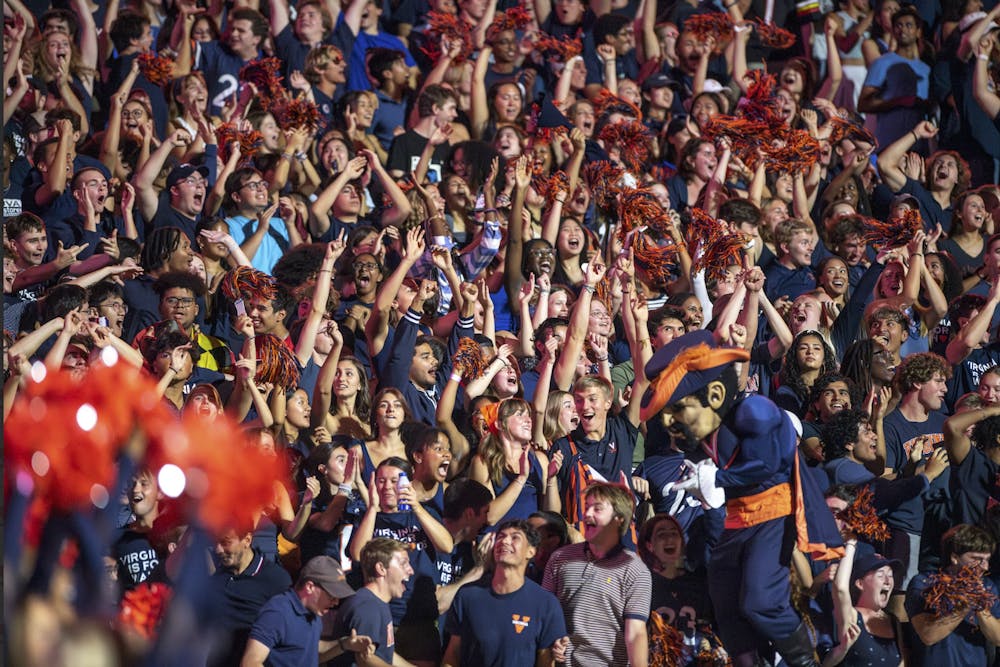The ACC is not what it used to be — in fact, it is much better. Adding Stanford and California to a conference already stacked with athletic powerhouses has turned the ACC into a dominant collection of schools across a variety of sports. But in a conference rife with athletic stalwarts and historical giants, who reigns supreme? When weighing the in-conference success of all sports on the national stage, the answer is easily Virginia.
Looking at other schools, the previous additions from the now-defunct version of the Big East conference have yet to make an impact on the national level since they each joined the ACC between 2004 and 2013. Virginia Tech, Pittsburgh, Syracuse and Boston College are simply the salad before the lobster thermidor — solid, but nothing too special. Syracuse does have 16 national titles among that bunch, but only three of those have come as a member of this conference. To truly be number one in the ACC, the only national championships that are relevant to this conversation are titles that were won as a member of the ACC.
Similarly, the latest additions, Stanford and California, certainly have the quality that make them formidable additions to the conference — but having only been around for a couple of months, they have yet to prove themselves against the best that the East Coast has to offer. In contrast, North Carolina, Duke and others who have long histories of excellence across ACC sports certainly have valid arguments to be labeled as top dogs.
Nevertheless, leading the charge as the true kings and queens of the ACC are not the Tar Heels, Blue Devils, Orange or even the Fighting Irish, but the Cavaliers — the athletic superpower of the Atlantic Coast with significant hardware over the past few years. In holistically examining the conference, Virginia is supreme beyond a shadow of a doubt.
There is only one true rival to the Cavaliers’ success, and that is North Carolina. The Tar Heels’ titles are most certainly impressive at face value, but holistically, only eight of their programs have won a national title. By comparison, the Cavaliers have had 10 programs win it all.
A major indictment against North Carolina’s case to be the best of the ACC is that 64 percent of their national championships come from just two sports — women’s soccer and field hockey. In comparison, however, Virginia’s top two title-winners make up just 41 percent of the University’s total national championships. In this way, it is clear that the Cavaliers have a more complete athletic department, while North Carolina’s success is largely dependent on their top two programs plus men’s basketball. Point, Virginia.
It is worth noting, however, that in the most popular revenue sports, Virginia might not have the edge. The football program is, at best, aggressively mediocre — ending the season ranked only three times since 2000. And because these days, the basketball program often looks stagnant and tepid, it is easy to forget that the Cavaliers are the last ACC team to conquer March Madness and win a national championship.
Baseball is a similar story with Virginia owning the most recent national championship by an ACC school back in 2015. Additionally, the Cavaliers have reached the College World Series three times in the past four years.
But where Virginia truly shines is in sports which lack the same popularity as football. Importantly, popularity does not make winning trophies any less prized. Where the Cavaliers truly shine is in having a vast majority of their teams contend on the national level more often than not.
When searching for success, there is no better example of pure dominance than the women’s swimming and diving program. Virginia has won four straight national championships and was well-represented at the Paris Olympics this summer. No other ACC school — save for brand-new Stanford — has claimed even a mere atom of the Cavaliers’ success over the past few years in this sport.
Men’s lacrosse has also been dominant — with Virginia being a strong pipeline to the professional ranks. The Cavaliers have the third most national championships of all time in the sport.
In addition to dominating in the pool and on the lacrosse field, Virginia owns the men’s tennis court. Coach Andres Pedroso’s bunch has won six national championships in the past 11 seasons. All other ACC schools combined have won just a single national title in men’s tennis as a member of the conference.
Of course, one cannot forget about men’s soccer and their seven national championships. That is nearly double the closest ACC school — Clemson, with its four titles — and locks up yet another sport where the Cavaliers can claim superiority over conference foes.
In the age of expansion and NIL, the ACC as we know it is evolving daily. Nevertheless, there can be no doubt that the best of the best call Charlottesville home. To quote Drake and company, what matters most is one thing — “trophies.” Apologies to others in the ACC, but the Cavaliers are simply head and shoulders above the rest.







